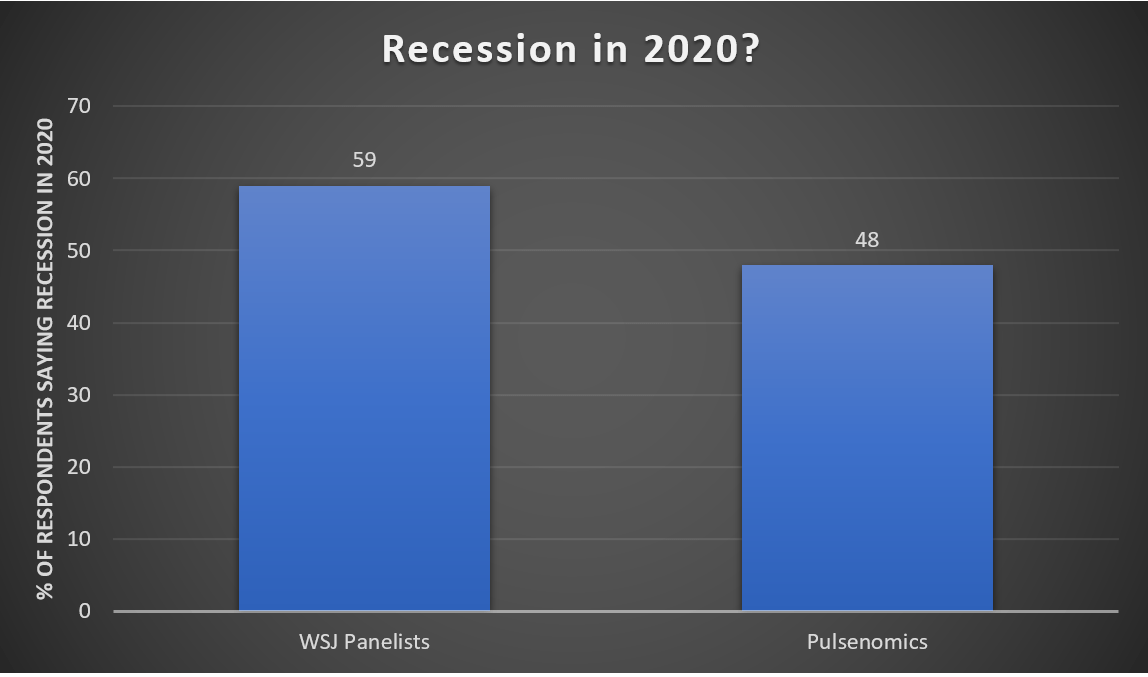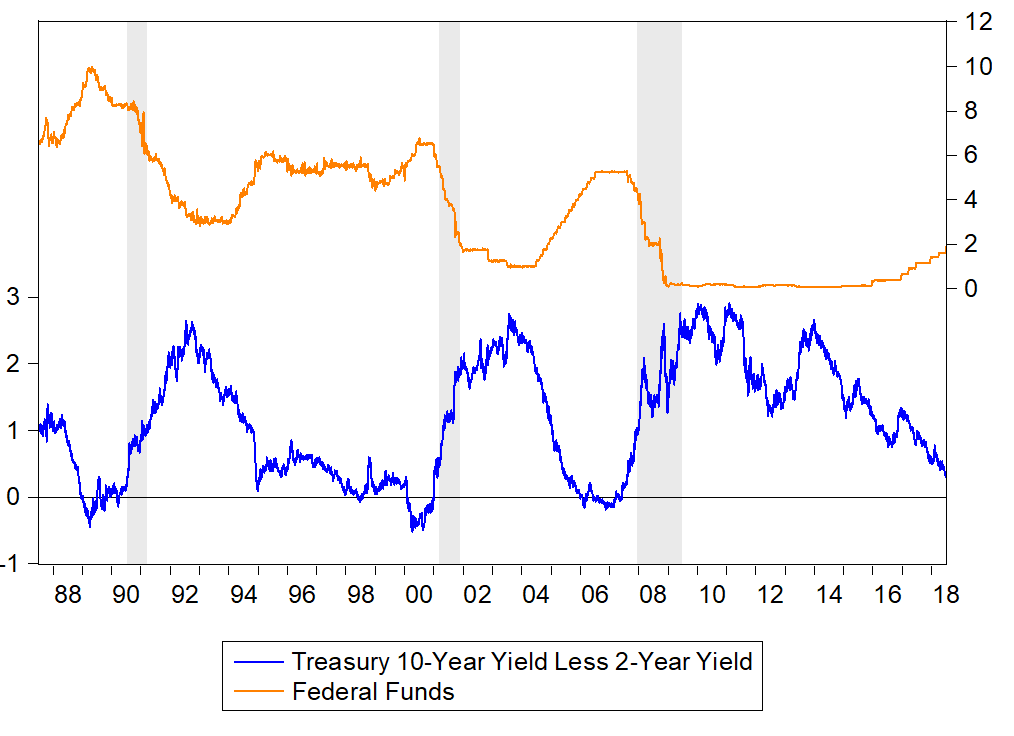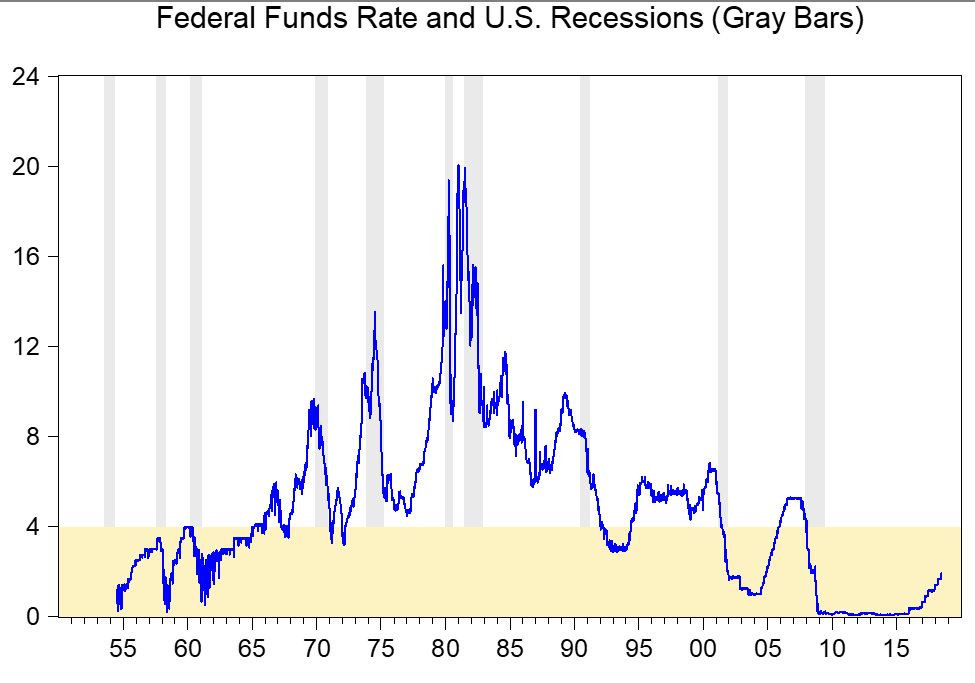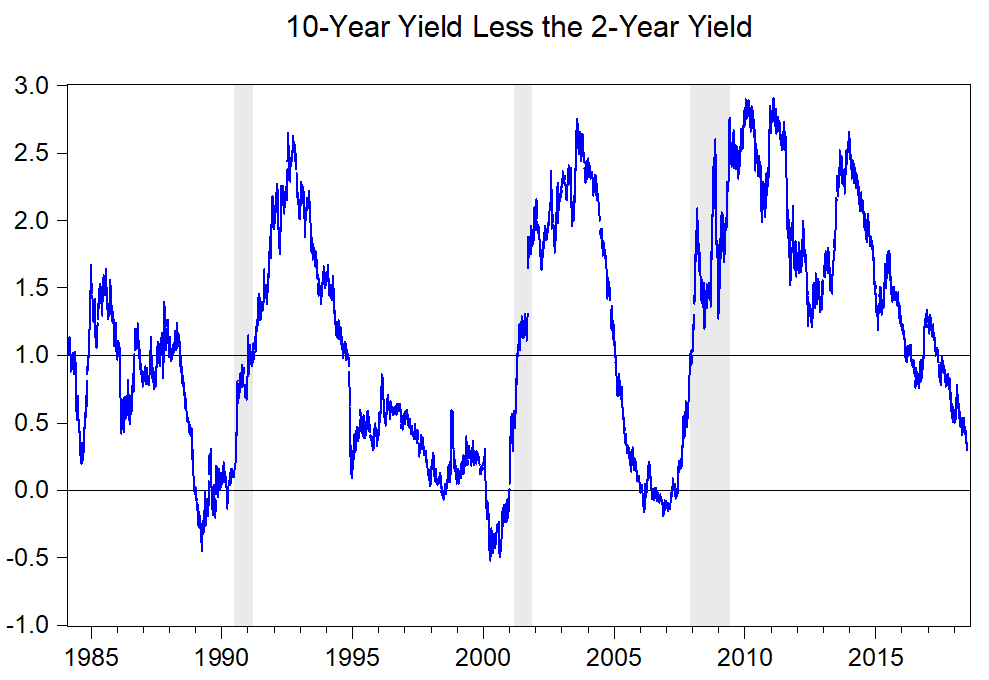This article was written on July 4th 2018 and has not been edited since then? How do you think the no recession prediction before 2020 did? See the full article below.
If you’re a follower of economic prognosticators, you know that the hot word now is “Recession in 2020”. Interestingly, 2020 also happens to be an election year, the year in which President Trump will face reelection.
Here’s one example of economists predicting 2020 as “the recession year”? This survey has a whopping 59% of economists surveyed by the Wall Street Journal forecasting a 2020 recession. The number predicting 2020 isn’t much lower for the Pulsenomics survey respondents, with 48% of those respondents “predicting” a recession in 2020.
Recession in 2020?

How reasonable are these “professional” forecasts? Are they well-thought-through? If they are, then Mr. Trump will be gone in a little over two years.
The Federal Funds Rate
On face value, it appears a large portion of the economists responding to the survey were thinking about the Federal Reserve and the yield curve. Why? Because in every recession since time began (at least that’s what it feels like) the yield curve has inverted prior to a recession materializing, and, if one assumes the Federal Reserve hikes the target rate two more times in 2018 and four times in 2019, then the yield curve may get close to inverting.
Here’s a look at where the Federal Funds rate and the yield curve (the 10-year less the 2-year yield) stand right now.
Now, if one simply extends the orange (Federal Funds rate) and blue (yield curve) lines out a couple years, one gets an inverted yield curve at a Federal Funds target rate of 4%.
That’s all there is to it. Recession predictions are reduced to simple junior high mathematics. Of course, three big assumptions undergird this “Recession in 2020” view.

Assumption #1
First, one must assume that the Federal Reserve raises the target interest rate every quarter, eventually reaching 4% by the end of 2020. This comes with a big “if” of “no economic hiccups”.
Has anyone every known the Federal Reserve to be so plodding? Has the economy ever behaved so smoothly? Greenspan was in the mid-2000s, but that allowed a long-boom. If a Greenspan mid-2000s experience is before us, there is no way we’ll have a recession in 2020. Instead, we’ll see an economic boom.
Assumption #2
Second, one must assume that a recession can occur with a federal Funds target rate below 4%. When was the last time we saw a recession with a 4% or lower target rate?
How far back do we have to go? All the way back to the early 1960s.
The rate reached a peak of 5.25% before the 2009 downturn.
Then the rate reached almost 7% prior to the 2001 downturn.
The rate was at 8% when the recession officially started in 1990.
The rate was higher than 4% in the 1980s and 1970s well before the onset of a recession.

Assumption #3
Third, one has to assume that a recession happens quickly following the inversion of the yield curve. Here’s a look at the yield curve with recession indicators (gray bars).
Does a recession materialize once the yield curve inverts? The answer is no. The yield curve inverted in March 2000, and a recession didn’t materialize until April 2001. The yield curve inverted in February 2006, and a recession didn’t formally show up until January 2008.

Bottom line: 2020 is too early for a recession. Economists ought to think before talking.
Conclusion
Overall, the popular view among economists is “Recession in 2020”, with 59% of Wall Street Journal respondents and 48% of Pulsenomics respondents affirmatively stating they think a recession is set for 2020. Whether these “forecasts” are politically biased (economists are notoriously biased towards Democrats) or based simply on junior high mathematics is a separate question, but if they are correct, the future does not look bright for Mr. Trump and the Republicans.





